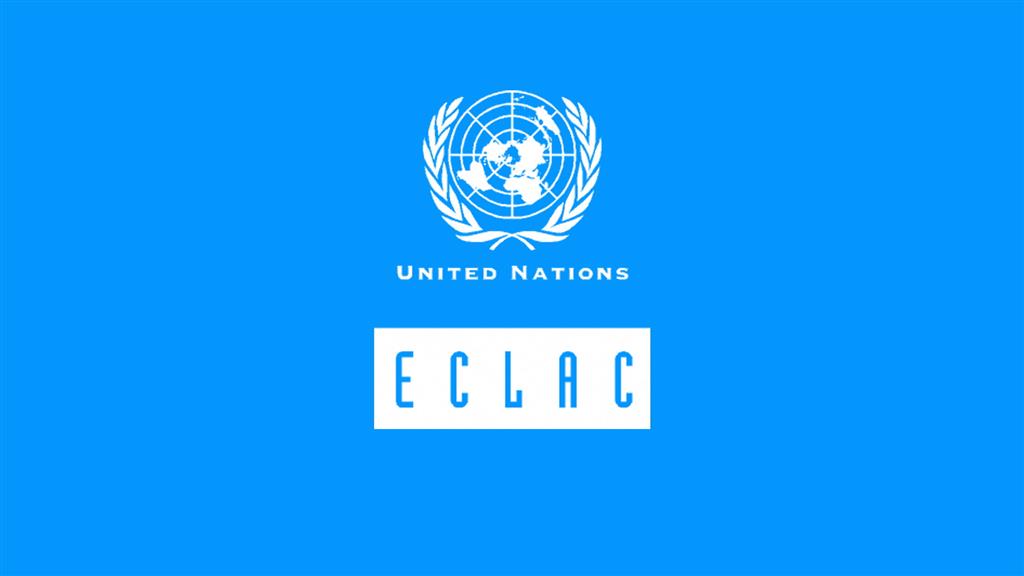Despite this progress, 172 million people in Latin America and the Caribbean still do not have enough income to meet their basic needs and 66 million of them cannot buy a basic food basket, according to the report Social Panorama of Latin America and the Caribbean 2024: The challenges of non-contributory social protection in advancing towards inclusive social development.
The percentage of the Latin American population living in poverty in 2023 was 27.3%, marking a decline of 1.5 percentage points compared with the year before, and of more than 5 percentage points vis-à-vis the figure in 2020, the most critical year of the COVID-19 pandemic. This is also the lowest figure registered since comparable records have been in place. Meanwhile, the extreme poverty rate covered 10.6% of the region’s population, a figure 0.5 percentage points below that of 2022 but above 2014 levels. In total, 172 million people were living in poverty in 2023, of whom 66 million were living in extreme poverty, the Economic Commission for Latin America and the Caribbean (ECLAC) reported today.
The report Social Panorama of Latin America and the Caribbean 2024: The challenges of non-contributory social protection in advancing towards inclusive social development – presented by ECLAC’s Executive Secretary, José Manuel Salazar-Xirinachs – indicates that poverty continues to affect working-age women more than men and that the percentage of children and adolescents in situations of poverty is considerably higher than that of other age groups. Poverty is also greater in rural areas (39.1%) than in urban areas (24.6%).
More than 80% of the decline in regional poverty in 2023 can be attributed to what occurred in Brazil, a country home to one-third of Latin America and the Caribbean’s population and where non-contributory transfers were decisive. If the population living in poverty in Brazil had not fallen, the regional average in 2023 would have been 28.4%, just 0.4 percentage points lower than the year before, and the incidence of extreme poverty would have remained unchanged, at 11.1%, the report says.
ECLAC also indicates that between 2022 and 2023, there were no significant changes to income inequality levels in the region, which remained stubbornly high. Between 2014 and 2023, the Gini index experienced a slight reduction of 4%, dipping from 0.471 to 0.452.
Wealth distribution is significantly more unequal than income distribution, according to estimates included in the report that integrate various sources of information (financial and non-financial assets) on Latin America’s population. Around 2021, 10% of the highest-income people accounted for 66% of total wealth, and the wealthiest 1% accounted for 33%.
The Social Panorama of Latin America and the Caribbean 2024 also warns that the lack of social protection remains high in the region. In 2022, 1 out of every 4 households (23.5%) lacked access to social protection, either contributory or non-contributory, in 14 Latin American countries. This proportion rose to 1 in 3 households (36.5%) in the lowest-income quintile and in rural areas (29%).
Non-contributory social protection, ECLAC argues, is vital in the households of the first, lowest-income quintile, since 1 out of every 2 of those households accesses social protection via that channel. This means that policies for cash transfers or in-kind transfers (such as school meals) as well as labor inclusion programs are key for linking people with social services and making headway on eradicating poverty and reducing inequality.
In 2022, 27.1% of people in Latin America were living in households that benefited from conditional transfer programs. Despite their positive effects, in the 14 countries studied, the amounts involved did not cover the deficit in the households’ per capita income enough to enable them to reach the poverty line.
The report verifies that non-contributory pension systems (NCPS) play a central role in poverty reduction in old age. In the last 20 years, the coverage of NCPS among people aged 65 and over increased by more than 27 percentage points, and during that period poverty in this same population fell by 14.3 percentage points.
“The strengthening of social protection systems in Latin America and the Caribbean, in particular non-contributory social protection, is a strategic space for adopting an integrated approach that can have significant impact on poverty reduction, the diverse causes of inequality, and the low levels of social cohesion in Latin America and the Caribbean and, therefore, on the attainment of inclusive social development,” ECLAC’s Executive Secretary, José Manuel Salazar-Xirinachs, emphasized.
“Tackling the development crisis in the region necessitates moving towards universal, comprehensive, sustainable and resilient social protection systems. To that end, we must urgently reinforce the social institutional framework with technical, operational, political and prospective (TOPP) capabilities,” ECLAC’s leading authority stated, highlighting the opportunity that the Second World Summit for Social Development in 2025 poses for addressing these challenges.
According to the report, in 2023, social spending amounted to 11.5% of GDP in Latin America – very similar to the 11.4% of GDP seen in 2022.
In Latin America, social public spending continues to be the main component of total public spending (53.3% on average in 2023). In the Caribbean, social spending as a share of total spending fell to 41.3% in 2023, which further widened the gap with Latin American countries.
According to ECLAC, to make progress on eradicating poverty, it is necessary to establish an investment standard for non-contributory social protection of between 1.5% and 2.5% of GDP, or between 5% and 10% of total public spending. On average, the Social Development Ministries of 20 Latin American and Caribbean countries spent 0.8% of GDP and 3% of total public spending on non-contributory social protection in 2022.
Finally, the 2024 edition of the Social Panorama of Latin America and the Caribbean includes a chapter on social protection in light of the care crisis and population ageing, a scenario that demands policies with a gender, intersectional and rights-based approach. In the next 25 years, the population aged 65 and over will double (from 9.9% to 18.9% of the total population), numbering 138 million people by 2050.
“The sexual division of labor and the current social organization of care create gender gaps that manifest themselves throughout the life cycle and in the obstacles that women face to labor inclusion and social protection,” ECLAC says. Thus, in 2022, only just over half of the women in Latin America and the Caribbean had links to the labor market (53.5%) and, among the women outside the workforce in the region, 56.3% said they were exclusively dedicated to domestic and unpaid care work (in comparison with 7.3% of men).
Women aged 65 and over have higher levels of poverty than men despite receiving pensions (both contributory and non-contributory), and 70.3% of the women who do not receive any kind of pension have income of their own that is below the poverty line. This same phenomenon occurs with 42.6% of the women who do receive a non-contributory pension. (https://www.cepal.org/en/pressreleases/eclac-regional-poverty-rate-which-rose-pandemic-has-declined-level-similar-2014-and)



































